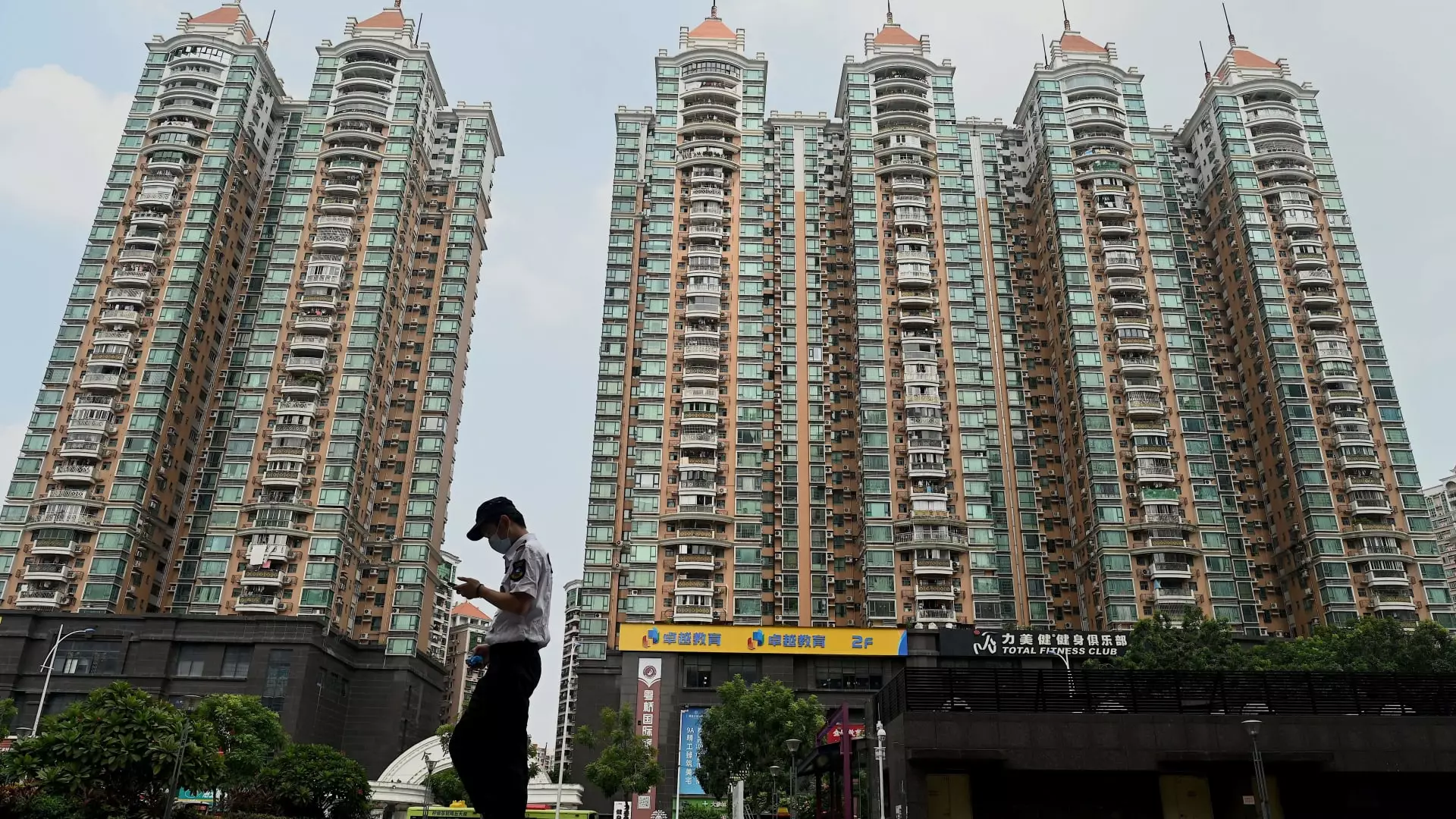The Chinese property market has made headlines recently due to a significant shift in purchasing regulations that may signal a turning point for the beleaguered sector. As Chinese property developers experienced a notable resurgence on the stock market, major cities unveiled comprehensive measures designed to enhance homebuyer sentiment amid ongoing economic challenges. This article explores the implications of these easing restrictions, market reactions, and the broader context surrounding China’s real estate landscape.
In a decisive move, the Guangzhou city government announced a lifting of all restrictions on home purchases, effective immediately. Previously, the requirements for migrant families included a minimum of six months of tax payments or social insurance to qualify for buying up to two homes. Moreover, single individuals faced limitations to owning just one property. This reform not only simplifies the buying process but also stimulates potential demand from an expanded demographic of homebuyers.
Similarly, Shanghai has responded to the economic turbulence by reducing the tax-paying period necessary for home purchases from three years to just one year. Furthermore, the city has adjusted the required down-payment ratio for first-time homebuyers to approximately 15%—matching the national average—and increased the ratio for second homes to around 25%. These adjustments mark a crucial pivot aimed at enhancing affordability and encouraging investment in the housing market during sluggish market conditions.
The announcement of these measures has had an immediate effect on the stock market. The Hang Seng Mainland Properties Index surged by more than 8% on the following Monday, extending previous gains. Notably, Hong Kong-listed real estate firms such as Longfor Group Holdings and Hang Lung Properties witnessed significant spikes in their share values, indicating robust investor confidence. For instance, Longfor saw an impressive 19.1% increase, highlighting investor optimism in the wake of these policy changes.
In tandem with these regional developments, the broader mainland markets experienced a positive jolt, with the CSI 300 indexing rising by 6%. The ripple effects of such regulatory changes underscore the intertwined nature of policy decisions and investor behavior, emphasizing how governmental actions can prompt swift financial market responses.
Experts note that while easing purchase restrictions may foster an uptick in property sales in major first-tier cities such as Beijing and Shanghai, the effects may be less pronounced in smaller cities grappling with high inventory levels. Analysts like Allen Feng from Rhodium Group have stated that similar measures in other regions have historically yielded limited results. This sentiment is echoed by Gary Ng of Natixis, suggesting stabilization rather than significant recovery is more likely in areas outside major urban centers.
The broader backdrop to these developments is a government mandate to counteract a prolonged decline in the real estate sector, which once played a pivotal role in China’s GDP. Following years of regulatory crackdowns aimed at curbing high levels of corporate debt, the sector has experienced a recession-like atmosphere. Policymakers are now focused on rejuvenating the market through policies that alleviate household financial pressures.
Future Prospects and Policy Measures
As the government seeks to restore confidence among potential buyers, experts like Erica Tay suggest that a focus on completing stalled or abandoned construction projects is essential. With only a fraction of this year’s construction endeavors reaching completion, there is a clear disconnect between supply and demand. Accelerating construction efforts could bolster consumer confidence and stabilize the market’s trajectory.
Additionally, the People’s Bank of China’s recent decision to lower interest rates on existing individual mortgages by an average of 0.5 percentage points further underscores the concerted efforts to stimulate the real estate sector. However, for the long-term viability of recovery, continuous and robust governmental support will be critical in overcoming the historical challenges that have marred the property market.
The recent easing of purchasing restrictions across major Chinese cities posits a critical context for potential recovery in the country’s real estate market. While there is cautious optimism among investors and analysts, the overarching challenges remain significant. Policymakers must focus on sustaining momentum through effective integration of supportive measures that restore confidence and continual engagement with the ongoing economic recovery. As the landscape continues to evolve, ongoing insights and adaptations will be pivotal in navigating the complexities of the Chinese real estate market.

Leave a Reply